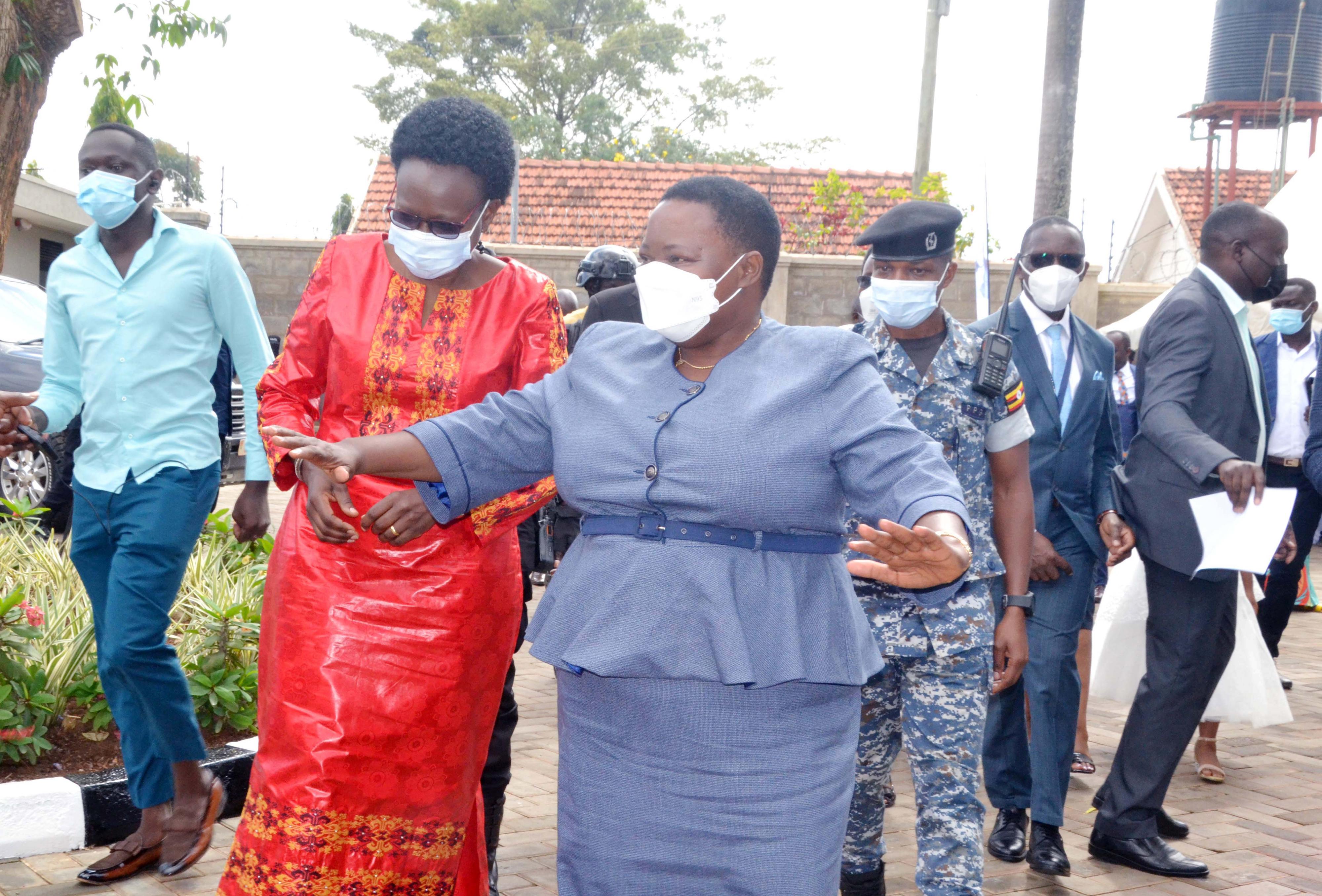Govt partners with private firm to make polio vaccines

Prime Minister Robinah Nabbanja (right) and Health Minister Jane Ruth Aceng arrive for the launch of Vaccine Access Initiative in Ntinda, Kampala, on May 11, 2022. PHOTO/SYLIVIA KATUSHABE
What you need to know:
- The VAI is formed by the Ministry of Health and two private companies Microhaem, a local firm, and America’s Imagine pharmaceuticals.
Government has unveiled the Vaccine Access Initiative (VAI), a private-public partnership, which aims at manufacturing polio vaccines by the end of this year.
The VAI is formed by the Ministry of Health and two private companies Microhaem, a local firm, and America’s Imagine pharmaceuticals.
Microhaem is the same company behind Test and Fly, a Covid-19 testing firm in the country.
READ MORE
Speaking at the launch of the facility in Ntinda, Kampala, yesterday, Ms Robinah Nabbanja, the Prime Minister, said the government will support the initiative to ensure it benefits Ugandans through addressing health challenges.
“Covid-19 has taught us a lesson. We need to develop the local capacity to deal with our health challenges. Remember that time when we were waiting for vaccines from the Covax facility and we couldn’t have access because that local capacity [to make our own] was lacking,” Ms Nabbanja said.
“I thank Imagine [Pharma] and Microhaem companies for answering the President’s call to build the capacity to manufacture vaccines and other selected pharmaceuticals. As a leader of government business, I pledge to support this initiative to ensure that these efforts succeed in the interest of all Ugandans,” she added.
This is not the first time the citizens are being promised a vaccine or drug manufacturing drive.
“This selfishness in the world [where countries are refusing to share vaccines] is bad but it is also good, it wakes up Africans... Our researchers are now entering stage 5 and by November 2021, they will be in stage 8. I can assure you that by the end of 2021, we shall no longer be waiting for outsiders to rescue us from mass deaths,” President Museveni said in June last year.
But Uganda has not yet started manufacturing vaccines amid billions of shillings channelled to researchers for vaccine development.
Now Dr Jane Aceng, the Health minister, said yesterday that the manufacturing may delay because it is the first time Uganda is venturing in vaccine manufacturing, which has complex processes.
“As to whether we shall have the first vaccine manufactured in the country, depends on how fast we can have technology transfer but also how fast the scientists can do their work. But I cannot set a date,” she said.
The Minister of Science, Technology and Innovation, Dr Monica Musenero, said in February that testing the locally-developed Covid-19 vaccines on human beings would start in eight months. Mr Cedric Akwesigye, the head of VAI, said yesterday that: “We are in late discussion with Sinovac for technology transfer to foster research, development and manufacturing of vaccines in Uganda. In the next six month, we will be launching a vaccine manufacturing plant.”
“We are at 70 percent completion of the facility. We are yet to get National Drug Authority for certification, we shall apply for World Health Organisation specification. We estimate that in six months we shall have finished and the first vaccine will be polio to be manufactured. He didn’t mention the amount of money have invested,” he added.
Capacity
Mr Cedric Akwesigye, the head of VAI, said the facility has a vaccination centre and storage. “The facility has capacity to store 15m doses of vaccines which are between 2 to 8 degrees centigrade, capacity to store 2m doses of vaccines which require ultra-cold storage temperatures of -60 to -90 degrees centigrade. Then 2m doses of vaccines which can be stored at -20 to -35 degrees centigrade,” he said.




